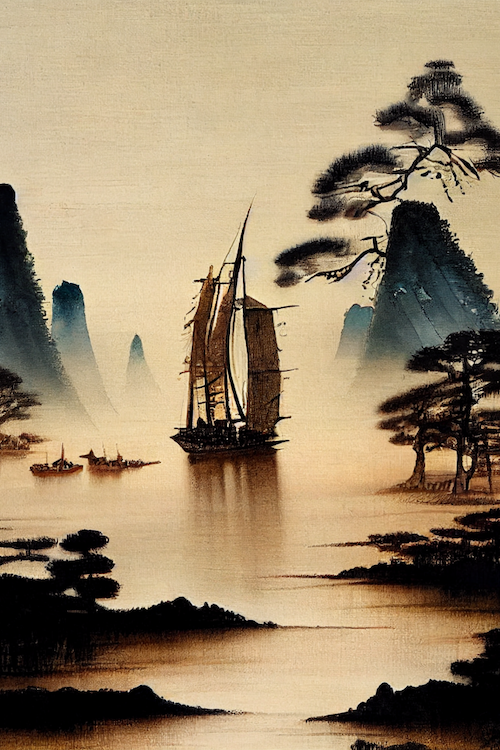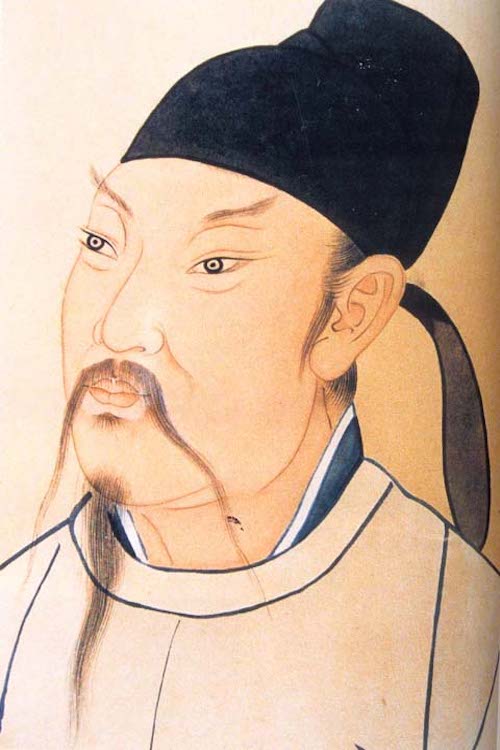
Farewell, my dear friend, as you depart on your journey westward bound,
Leaving the Yellow Crane Tower behind in the blooming of March’s profound.
With your lone sail as my guide, my gaze ventures far into the blue,
Following the Yangtze as it flows endlessly onward, forever true.
“A Farewell to Meng in the Yellow Crane Tower” is Li Bai’s work during his grand tour of Shu. Li Bai is a poet who loves nature and likes to make friends. He “loved to travel to famous mountains all his life”. He spent his whole life roaming and wandering. He traveled all over the Central Plains and left many works praising the beauty of nature and friendship. In 727 A.D. (the fifteenth year of Kaiyuan Emperor Xuanzong of Tang Dynasty), Li Bai returned from his eastward tour and arrived in Anlu, Hubei. He was already twenty-seven years old. He has lived in Anlu for ten years, but most of the time he met friends with poetry and wine, and traveled abroad. In his own words, “I spent ten years in Anlu with wine”. That is to say, while living in Anlu, Li Bai met Meng Haoran, who was twelve years older than him. Meng Haoran admired Li Bai very much, and the two soon became close friends.
In March of Yangchun in 730 AD (the eighteenth year of Kaiyuan), Li Bai learned that Meng Haoran was going to Guangling (now Yangzhou, Jiangsu), so he asked someone to bring a letter and asked Meng Haoran to meet him in Jiangxia (now Wuchang District, Wuhan). A few days later, Meng Haoran disembarked by boat, and Li Bai personally sent him to the riverside. I wrote this song “Yellow Crane Tower sends Meng Haoran to Guangling” when I saw him off.
故人西辭黃鶴樓,煙花三月下揚州。
孤帆遠影碧空盡,唯見長江天際流。

Li Bai (701-762), considered one of China’s greatest poets alongside Du Fu, lived during the Tang Dynasty’s golden age of poetry. Known for his vivid imagery and deep emotion, Li Bai’s work spans about 1,000 poems on themes like nature, friendship, and existential reflections. Celebrated for his spontaneous verse and exploration of Taoist ideals, Li Bai’s poetry also deeply admires the natural world and ancient times, often challenging life’s ordinary constraints. His depiction of China’s landscapes combines natural beauty with personal sentiment. Earning the title ‘Poetry Immortal,’ Li Bai’s influential poetry is globally admired for its artistic and philosophical depth.
Image: MidJourney/DALL-E 2